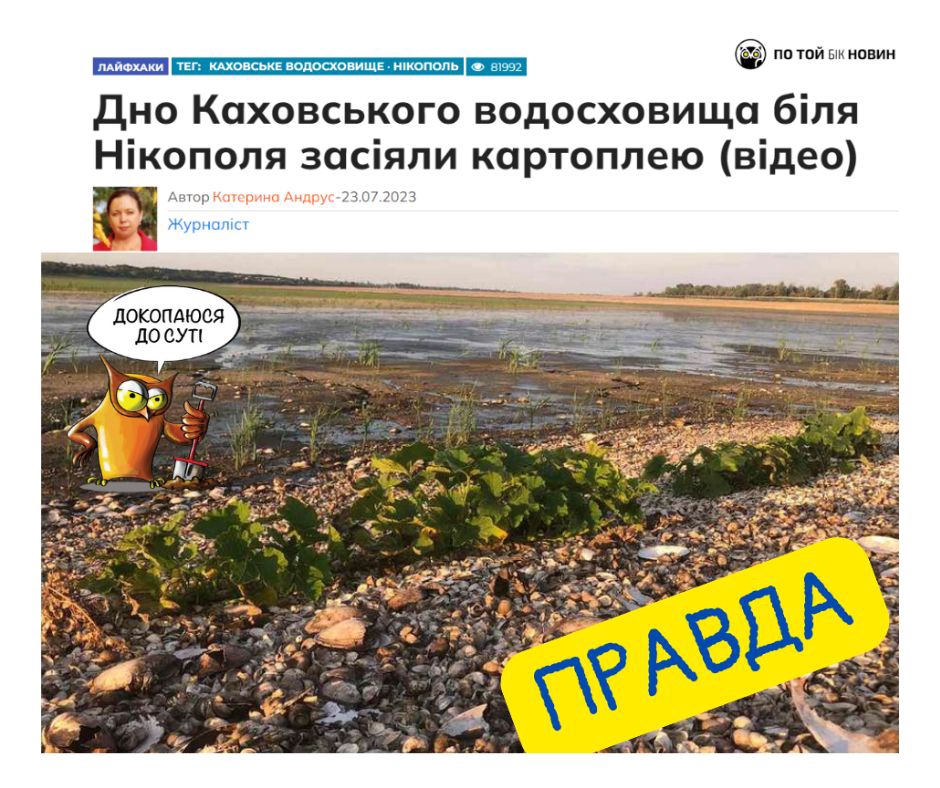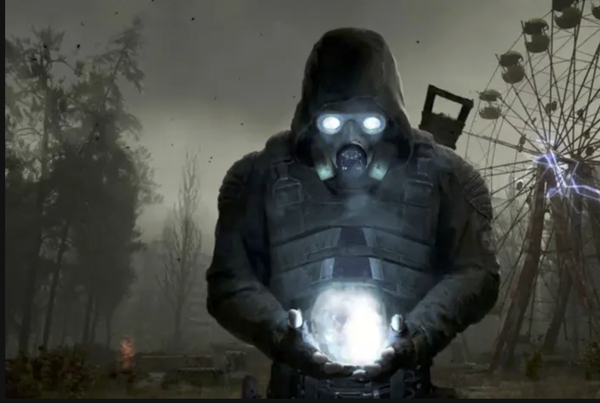True story: residents of Nikopol had transformed the depths of the Kakhovka reservoir into a makeshift vegetable garden

Back in July, many Ukrainian and international publications wrote that residents of Nikopol had allegedly transformed the depths of the Kakhovka reservoir into a makeshift vegetable garden. These allegations were substantiated by a video circulating on… TikTok.
“Ukrainians found use for the fertile land and planted potatoes in even rows at the bottom of the reservoir near Nikopol, Dnipro Region. Before the dam was blown up, the Nikopol Sea was there,” reported one media outlet.
However, we couldn’t trust such a source, especially regarding the validity of this news. Local residents were interviewed, yet none of them could vouch for the existence of this garden. The prevailing sentiment was that it might be a fake story.
But recently, Nikopol News, a local media outlet, published a photo report, offering evidence of this very garden. The images capture an assortment of vegetables, including zucchinis, growing amidst the shell fragments. Fruit setting had even begun. These plants appear to be meticulously organized in even rows, leading journalists to speculate that their presence is not a mere accident. Instead, it suggests someone had undertaken a deliberate experiment.
The text states that the photographs depicting the vegetable garden “made their way” to the editorial office. This was indeed intriguing, so we reached out for further clarification directly to Volodymyr Zahranychnyi, the founder of Nikopol News, who confirmed the veracity of both the images and the existence of this garden.
According to Zahranychnyi, the courageous person behind these images is one of their freelance photojournalists. In fact, the Nikopol Military Administration had imposed a strict ban on access to the site. The reason behind this prohibition lies in the vulnerable geopolitical positioning of the region; Enerhodar, which is currently under occupation and a mere 5-7 kilometers away, offers a clear view of almost the entire coastline of Nikopol. The city of Nikopol endures constant shelling from this occupied territory.
“In the first days following the dam’s destruction, when the waters began to recede from Nikopol’s shores, a throng of residents flocked to the area, driven by sheer curiosity and a desire to comprehend the new realities. It was a moment of collective shock… and great curiosity, of course. Yet, despite the dangers, many “seekers” appeared in the area. But, this can be very dangerous, as the region is under constant shelling. That’s why a strict ban was imposed. No one was allowed to approach the shore, take pictures or make videos,” explains Zahranychnyi.
But, despite the ban, people still go there, take pictures, and some have even ventured into growing crops in the area. Our editorial office doesn’t endorse such behaviour, although we, too, once defied the ban. Simply having a photographer on the floor of the former reservoir sets a bad example for the locals to follow.
Regarding the individuals tending to these gardens, Zahranychnyi observes that people who have endured relentless daily bombardments for 13 months have, regrettably, acclimated to a life devoid of fears and instincts of self-preservation. They have little choice, as the threat of shelling persistently haunts their daily lives. Hiding in basements and bomb shelters indefinitely is untenable. Routine activities, such as grocery shopping, working, and getting water, are daily necessities. The decision is simple: adapt to life in a city marked by constant danger or abandon it altogether. From the perspective of the local residents, these vegetable gardens pose a similar level of risk as simply residing in Nikopol ![]()






